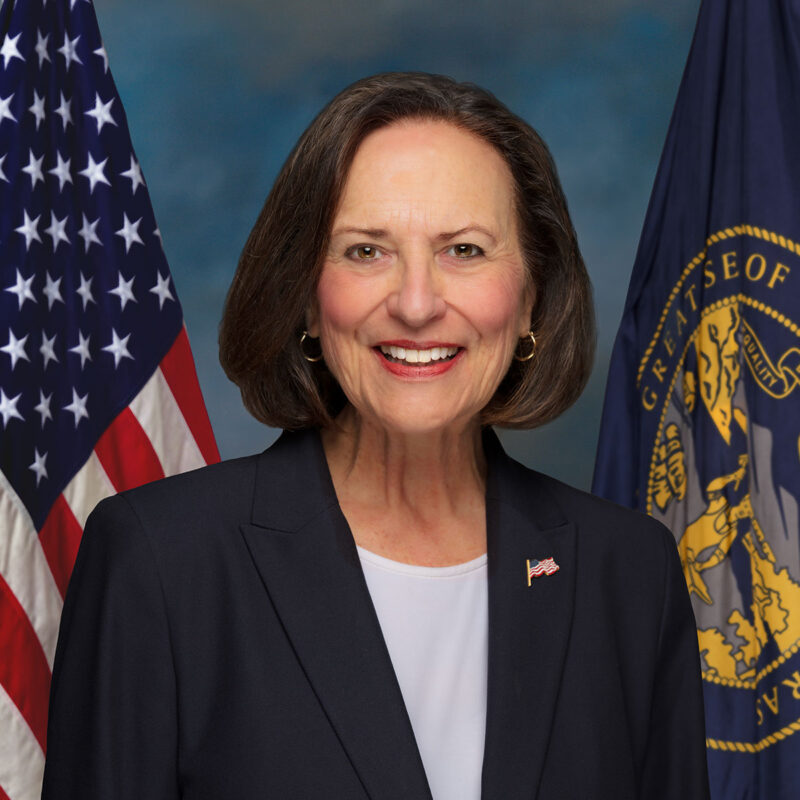![]()

By U.S. Senator Deb Fischer
The first American naval force was formed during the American Revolution to defend against the world-class British fleet. Despite some early successes, the Continental Navy struggled to compete with the Royal Navy and was demobilized after the war ended. In 1794, to address the threat of piracy of American merchant ships, Congress commissioned new U.S. Navy warships, and a new age of American sea power was born.
In 1825, President John Quincy Adams petitioned Congress to establish a naval academy. He believed that the U.S. needed a school “for the formation of scientific and accomplished officers.” He argued that a strong, successful Navy required capable and skillful Sailors trained in a school, similar to how future Army leaders were educated at the U.S. Military Academy, which had been established decades prior. A naval academy would not only educate its students and prepare them for life in a modern U.S. Navy, but it would also inspire camaraderie and community among its officers. Twenty-five years later, a 10-acre plot of land in Annapolis, Maryland became the U.S. Naval Academy.
Since those humble beginnings, the Naval Academy has transformed into one of the best public educations and experiences available to young Americans today. It expanded its curriculum from the basics of “mathematics and navigation, gunnery and steam, chemistry, English, natural philosophy, and French” to the current curriculum with the option of as many as 26 majors and countless electives and research opportunities.
And it wasn’t too long ago that US News & World Reports ranked the Naval Academy as the top public school in the country, with one of the top five engineering programs.
The Naval Academy is truly exceptional—and it must be, because America’s safety and prosperity depend on its excellence. The men and women who graduate go on to have influential leadership positions, in both military and civilian life. From Fleet Admiral Chester W. Nimitz, who led naval forces to victory in the Pacific campaign during WWII, to Astronaut Alan Shepard, the first-ever American to travel to space, to former Senator John McCain, a colleague of mine and an incredible American, the Naval Academy knows how to prepare their students to be the best and most successful versions of themselves.
The most important mission of the Naval Academy is to train our future leaders of Sailors and Marines to protect the United States, deter our adversaries, and defeat our enemies. And so, unlike other students at most colleges, our midshipmen receive not only a rigorous academic education, but are taught to develop strength of character, power of will, and an ironclad sense of right and wrong.
For that reason, all prospective applicants to the Naval Academy must receive a nomination from an official source, usually through their Representative or Senator. This is a highly selective process—any given Member of Congress may only have five constituents attending the Naval Academy at any given time.
In addition to my role as a nominator, earlier this year, I was appointed and took the oath to serve as one of the U.S. Senators on the U.S. Naval Academy’s Board of Visitors.
As a member of the Board, I am committed to maintaining the values the Naval Academy was founded on, especially the core principles of honor, courage, and commitment. The Naval Academy is a place that creates leaders and heroes rooted in tradition—in American values. Now more than ever, we need service academies that produce the type of leaders that can win America’s wars.
My time on the Senate Armed Services Committee has informed me to the problems our Navy is facing. China has rapidly built out its naval forces – outpacing the United States in terms of number of ships. We aren’t innovating quickly enough or adequately leveraging emerging technologies. The Navy has struggled to meet recruiting goals in recent years. Now more than ever, while adversarial superpowers are rising to challenge us, is the time to invest in our Navy and encourage our young people to serve. We do not want to face a future where we are unprepared. We cannot fall behind.
Using my experience as a Senator and a Senate Armed Services Committee member, I will use whatever influence I may have to keep the U.S. Naval Academy and America strong, and I pledge to devote my time and effort to preserve these traditions of excellence.
Thank you for participating in the democratic process, and I look forward to visiting with you again next week.
